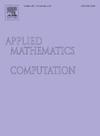基于动态自适应匹配的空间异质社会困境合作演化
IF 3.5
2区 数学
Q1 MATHEMATICS, APPLIED
引用次数: 0
摘要
从现实世界的互动场景来看,单一社会困境参与的假设或异质社会困境情境下的固定角色分配从根本上歪曲了人类社会认知的动态。经验证据一致表明,行为可塑性是通过跨异质社会困境环境的适应性身份转换实现的。在此,我们建立了一个同时包含多种社会困境(囚徒困境和雪堆博弈)的进化博弈模型,其中代理人参与由其自身适应特征控制的多态博弈环境。具体地说,在策略更新阶段,如果agent x的当前策略保持不变,则其策略粘性θx增加一个单位;否则,度量恢复到初始值0。此外,如果θx达到最大值100,则表示旧代理的终止和新代理的初始化,度量也恢复为0。策略依从性超过预定义阈值θth的智能体被归类为具有较强的社会困境解决能力,低于阈值的智能体被分配到温和冲突情景。随后,通过充分的蒙特卡罗模拟,我们系统地研究了动态适应多社会困境系统中合作的演化轨迹和稳定状态特征,得出了一些有见地的发现。本文章由计算机程序翻译,如有差异,请以英文原文为准。
Evolution of cooperation in spatial heterogeneous social dilemmas with dynamic self-adaptive matching
From the perspective of real-world interaction scenarios, the assumption of monotypic social dilemma engagement or fixed role allocations within heterogeneous social dilemmas contexts fundamentally misrepresents the dynamics of human social cognition. Empirical evidence consistently suggests that behavioral plasticity is achieved through adaptive identity switching across heterogeneous social dilemma environments. Herein, we develop an evolutionary game model simultaneously encompassing multiple social dilemmas (prisoner's dilemma game and snowdrift game), wherein agents engage in polymorphic game-environment governed by their own adaptive characteristic. Specifically, during the strategy update phase, if the agent current strategy is retained, its strategy stickiness increases one unit; otherwise, the metric reverts to the initial value of 0. Additionally, if reaches the maximum value of 100, it signifies the termination of the old agent and the initialization of a new one, with the metric also reverting to 0. Moreover, agent whose strategy adherence is beyond predefined threshold is classified as possessing strong social dilemma resolution capacity, while that is below the threshold is allocated to mild-conflict scenarios. Subsequently, through sufficient Monte Carlo simulation, we systematically investigate the evolutionary trajectories and stable-state characteristics of cooperation in dynamically adaptive multi-social dilemma systems, yielding several insightful findings.
求助全文
通过发布文献求助,成功后即可免费获取论文全文。
去求助
来源期刊
CiteScore
7.90
自引率
10.00%
发文量
755
审稿时长
36 days
期刊介绍:
Applied Mathematics and Computation addresses work at the interface between applied mathematics, numerical computation, and applications of systems – oriented ideas to the physical, biological, social, and behavioral sciences, and emphasizes papers of a computational nature focusing on new algorithms, their analysis and numerical results.
In addition to presenting research papers, Applied Mathematics and Computation publishes review articles and single–topics issues.

 求助内容:
求助内容: 应助结果提醒方式:
应助结果提醒方式:


